American Horror Story has just completed its 11th season, a stunning achievement for any show let alone a horror-themed one. Ever since it first hit screens in 2011, one of the franchise’s strengths has been its constantly-changing story, with each season presenting viewers with a new tale packed with fresh scares.
Like any long-running show, things are not always smooth. While some of American Horror Story‘s seasons are great, others are not. Some have been utterly lambasted by fans and critics alike.
If you’re looking to scare yourself silly, here is the definitive ranking of all ten series of American Horror Story, including the recently-released Double Feature.
11. Hotel (Season 5)

2015’s Hotel got a lot of media attention when it was announced that pop star Lady Gaga would be playing a crucial role. While her performance as Elizabeth Johnson is iconic, it can’t redeem a generally mediocre season.
Set in and around the Hotel Cortez in downtown LA, this season features many different intertwining plot lines⏤and therein lies the problem. There are simply too many plot threads going on at once, leading to some of the stories feeling half-cooked. Even so, the season is quite stylish and has some of the best visuals in the entire franchise. It’s just a shame that the audience is let down by the writing.
10. Cult (Season 7)
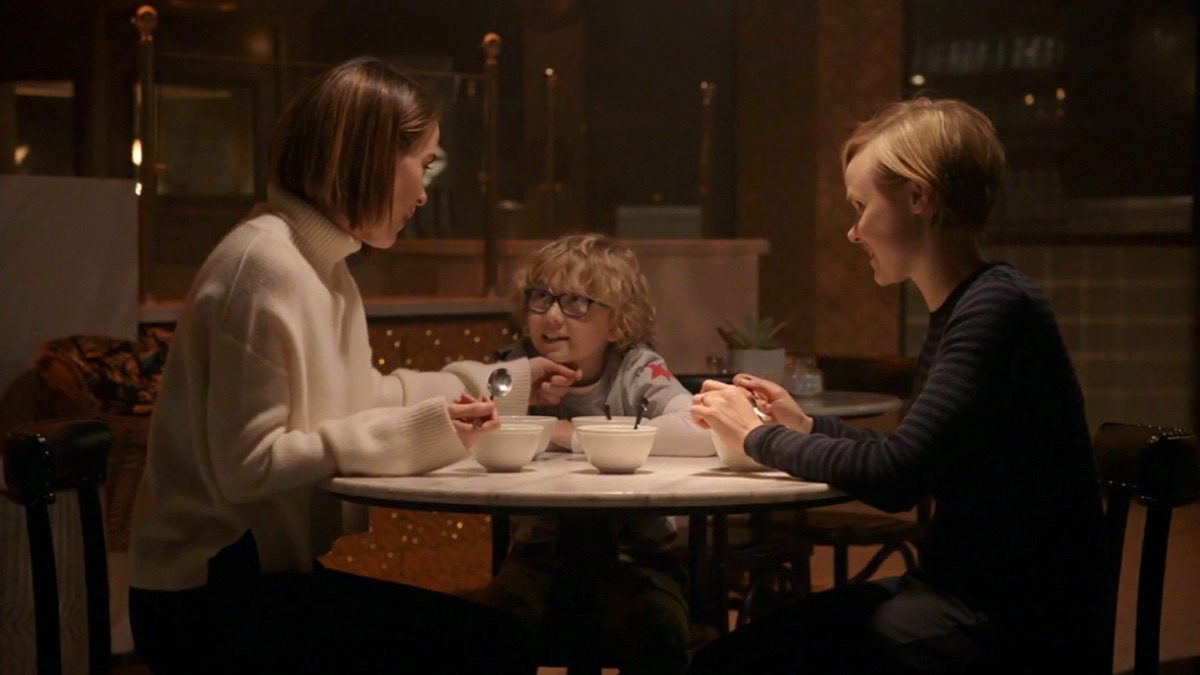
2017’s Cult was controversial when it came out due to its political themes and allusions to the 2016 Presidential election and the then-current political climate. Set in Brookfield Heights, Michigan, it follows far-right cult leader Kai Anderson and his growing sphere of influence. It also follows Ally Mayfair-Richards, a liberal who is stressed about the political situation and soon finds herself at the center of a series of strange events.
The political commentary in this season is a double-edged blade, as while it was a brave and unique choice at the time, it does feel a little flat and dated now. Also, this season is riddled with plot holes, with characters frequently defying all logic and previous characterization in an attempt to move the plot forward.
Cult shows that American Horror Story could pull off a political thriller if given the time and the budget; however, Cult simply needed a little more polish and time in the writers’ room.
9. Roanoke (Season 6)
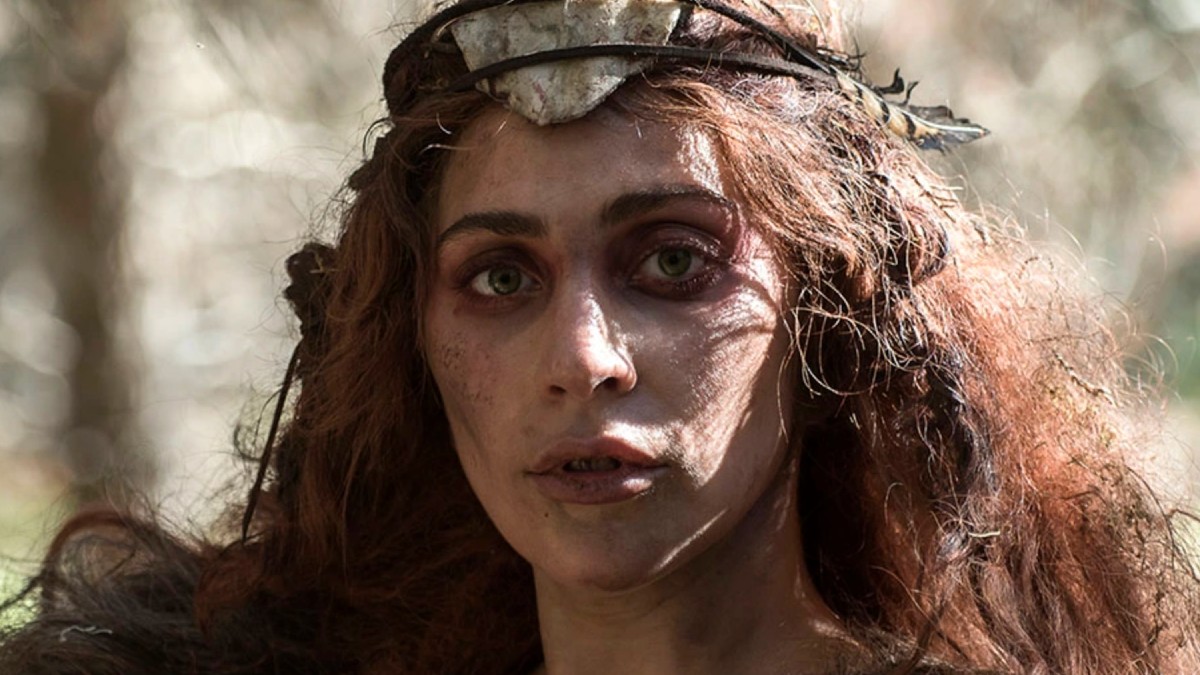
2016’s Roanoke is set in a farmhouse that sits on the land the infamous Roanoke Colony moved to. This series takes an interestingly meta twist, with the series starting as a documentary series focused on the couple who moved into the house. It then becomes a re-creation series based on the couple’s testimony before finally transitioning into a reality show based on the legend. It’s a clever and unique premise that is handled well, and the storytelling is solid. Alas, it just isn’t as scary or memorable as previous seasons of the show.
A frequent comment by reviewers was that this season felt like a low-budget knock-off of American Horror Story, the type of thing a low-end cable network would make to cash in on the franchise’s popularity, and it’s hard to shake that feeling while watching it. Franchise regular Sarah Paulson said that this season made her “feel trapped” by her contractual obligation to appear in AHS, which pretty much sums up the feeling of the season.
8. Freak Show (Season 4)
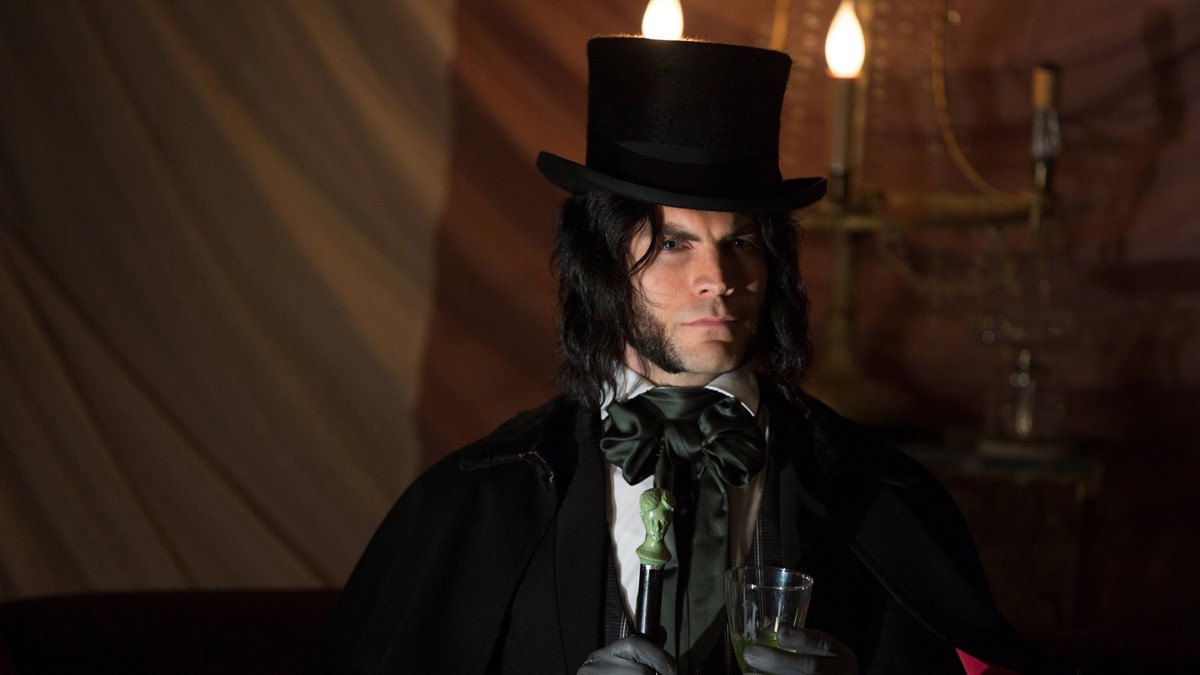
Freak Show was a turning point for the American Horror Story franchise. Hitting screens in 2014, the series follows a struggling Freak Show in the early 1950s. With the age of television dawning, it seems that it might be all over for the staff and the show’s marginalized performers. However, when they go to the town of Jupiter, Florida, the cast and crew quickly learn that a dark entity might be out to get them.
This series featured several musical numbers, and your reaction to that statement will likely determine how much fun you have with Freak Show. While the series did birth several iconic characters, including Twisty the Clown, the storytelling and tone were messy and veered wildly. In fact, after the season’s midpoint, things start going downhill quickly. On top of this, the ending is remarkably disappointing. It was clear that the writers wanted to make this season more complex than the previous three, but by doing so, they removed a lot of what made those other seasons work so well.
7. Apocalypse (Season 8)
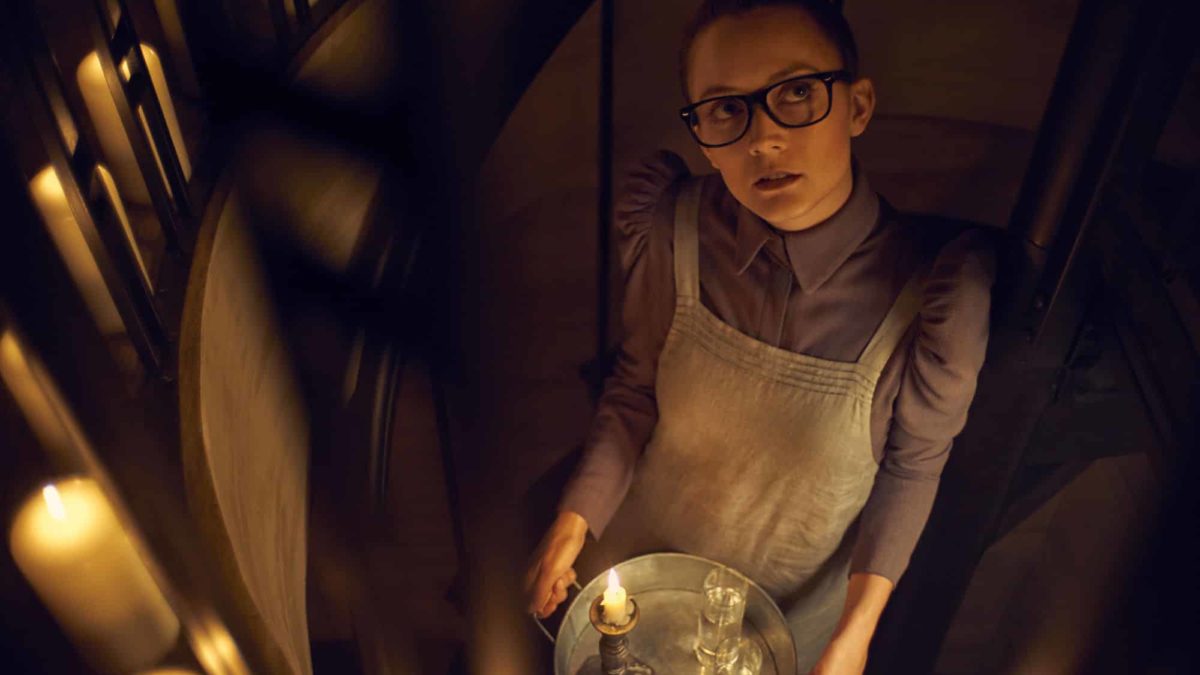
2018’s Apocalypse is a fascinating change of pace for the show, and it was clearly a reaction to fans and critics arguing that the franchise had gotten a little stale. After a nuclear apocalypse, several people seek shelter in Outpost 3, run by the oppressive team of Wilhemina Venable, Miriam Mead, and The Fist.
What sets Apocalypse apart from previous seasons is that this series links all of the past stories together. It also features loads of callbacks and cameos from past characters. If you’re a long-time AHS fan, then you’ll love these cameos and returns, especially the character interactions they lead to. However, linking seven stories that were not designed to be combined leads to a lot of messy storytelling and a plot that keeps breaking under the weight of its own references.
6. 1984 (Season 9)
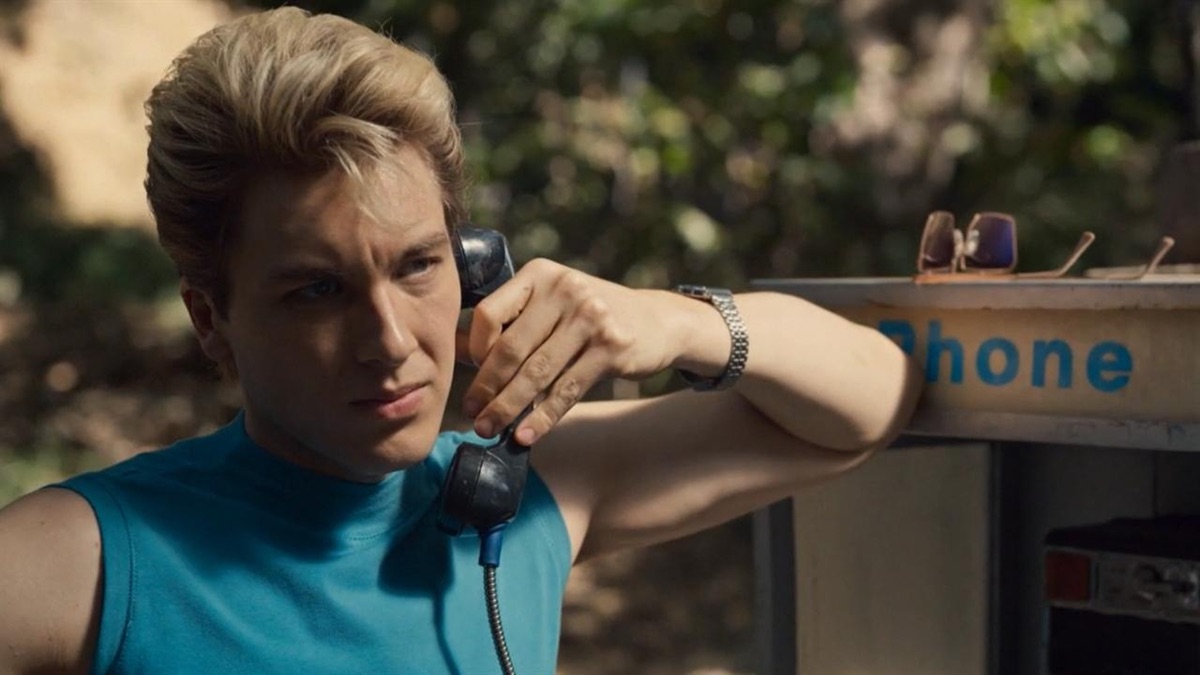
Nostalgia-based horror is in fashion, and 2019’s 1984 was obviously trying to ride this trend. It follows Brooke Thompson, a woman who travels to the recently-reopened Camp Redwood to work as a camp counselor. Brooke’s history with a serial killer and the camp’s dark past soon catch up to her, forcing Brooke and her friends to fight for their lives.
The decision to move away from the supernatural horror of the previous series and go in a more slasher-influenced direction divided fans of the franchise. While the seasons starts off strong, it gets bogged down in its own lore by the end, leading to a confusing and terribly-paced ending. However, the early episodes are so fun that you might be able to overlook this and have a good time regardless.
5. Double Feature (Season 10)
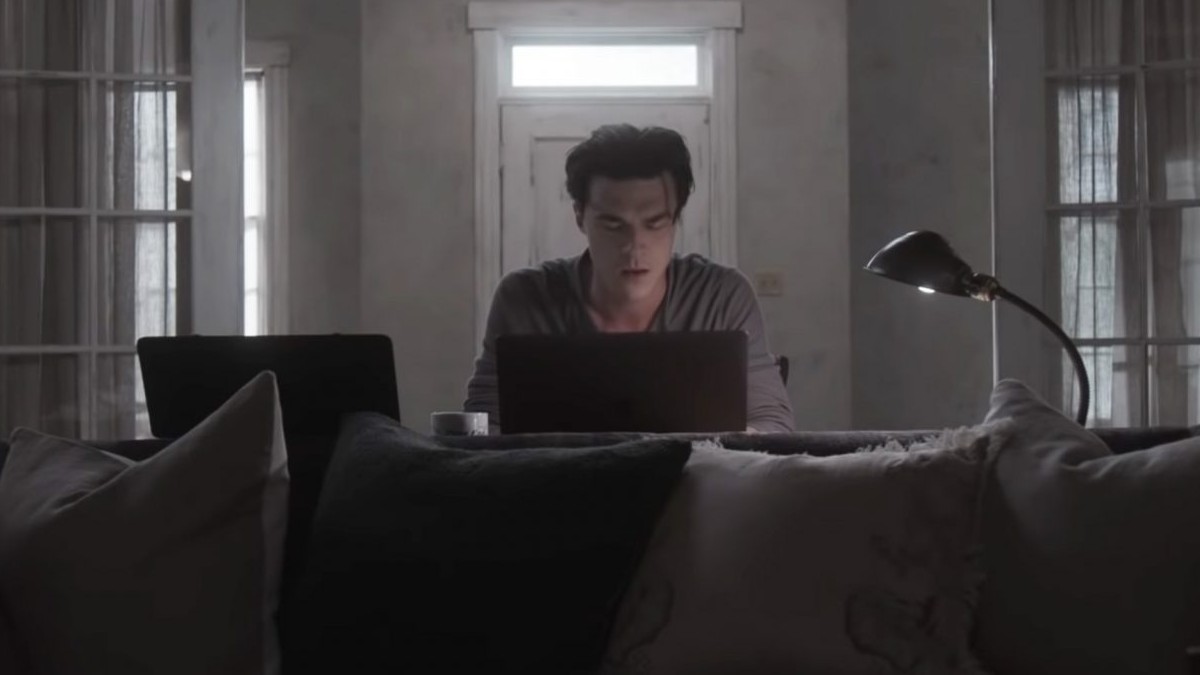
2021’s Double Feature has been getting rave reviews from fans and critics, with many saying that it’s a return to the AHS form. The season is split into two parts: “Red Tide” and “Death Valley.” These parts tell two different stories that quickly and surprisingly intertwine.
“Red Tide” follows Harry Gardner and his pregnant wife, Doris, as they move to Provincetown with their family. In true AHS fashion, the town isn’t all that it seems. “Death Valley,” the second half, follows a group that goes camping in the desert and gets caught up in a series of strange events. Feeling more high-concept than previous seasons, Double Feature feels really fresh. That said, the series lacks scares and feels more like a mystery show or thriller than a true horror story.
4. NYC (Season 11)
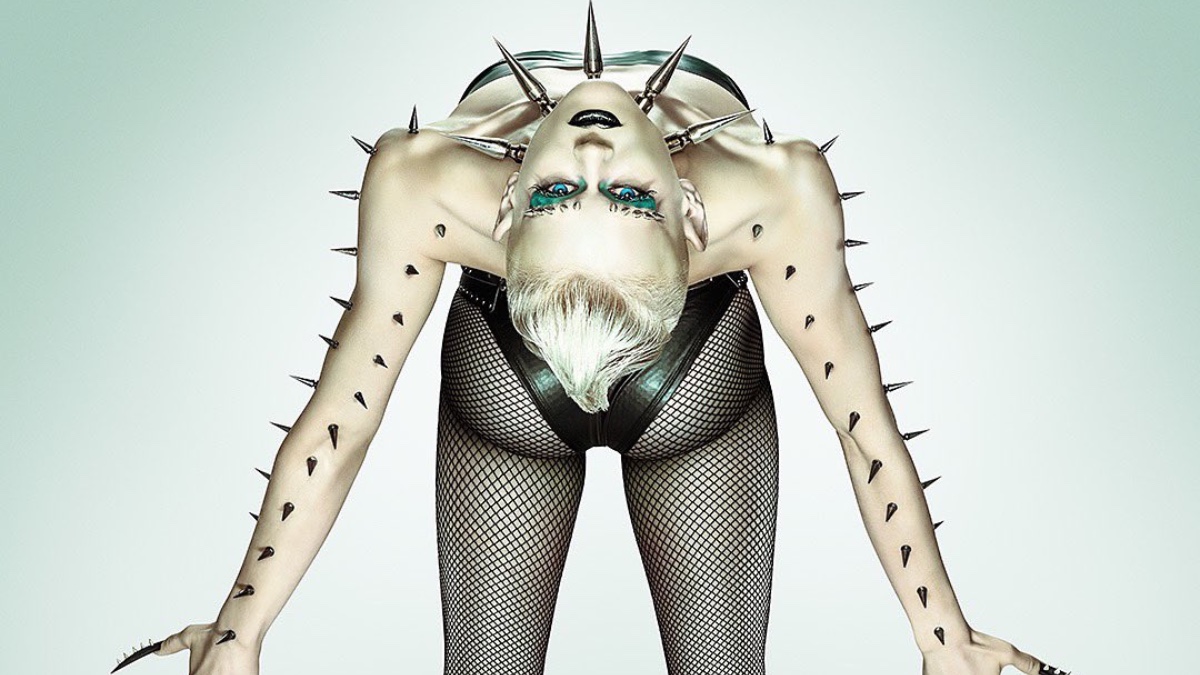
American Horror Story’s “NYC” season was not an easy watch by any stretch of the imagination. Though Ryan Murphy is accustomed to taking inspiration from real-life events, the conflict of season 11 was as harrowing as any installment – if not more so. Taking place in the titular city when the AIDS crisis had reached epidemic proportions, rashes of gay men are also being murdered. This was an ugly time in American history when former president Ronald Reagan largely ignored how AIDS affected the gay community. Many felt left to die by their government, which isn’t far from the truth. Murphy takes this moment in time in what could have been exploitative, but instead does something fascinating with it.
As opposed to the outlandish concepts explored in seasons like “Hotel” and “Double-Feature,” American Horror Story uses the platform to tell a story that shouldn’t be forgotten. In probably the most symbolic and artistic season, the serial killer ravaging the streets of New York is revealed to not be a villain. Or, at least, not a literal one. The Mai Tai Killer had been responsible for some deaths, but not all. Big Daddy is, as his name suggests, the real issue. The faceless and leather-clad figure circulated the season with a sense of imposing doom. In a particularly haunting sequence, as Sam (Zachary Quinto) runs from Big Daddy on a beach, Henry (Denis O’Hare) implores him to surrender to the figure. Just like the disease, Big Daddy is unavoidable, representing the inevitability of death at that time. Though this conclusion may not first spring to mind when thinking of classic American Horror Story seasons, it is one of the most thought-provoking.
3. Coven (Season 3)
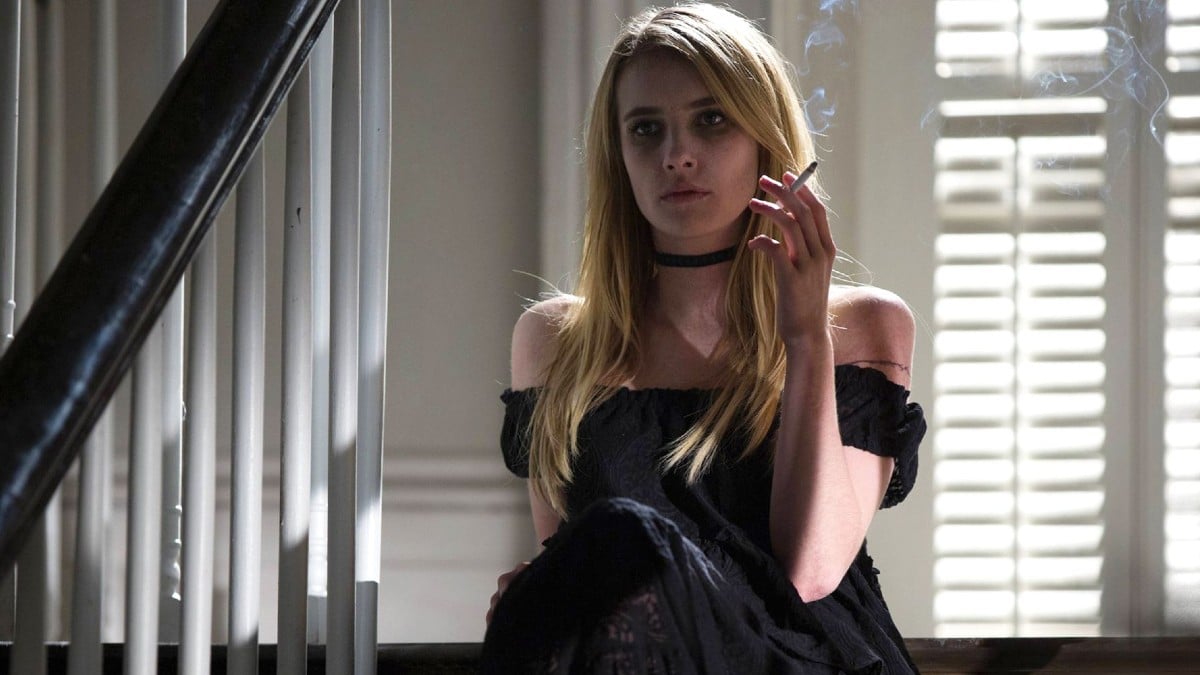
Coven was extremely popular when it came out in 2013. The series follows the descendants of the Salem witches who are trying to hide their identities and magic in the modern world. Set in a boarding school for witches in New Orleans, this series shows several girls grappling with the past while trying to avoid new and ever-present dangers.
This series has a weak overall story, especially compared to other seasons, but where Coven shines is in its characters. All of them are memorable and relatable, and special praise must be given to Sarah Paulson’s excellent performance. While not as horrific as other seasons, Coven is still a fun and memorable one that features plenty of stand-out and unforgettable moments.
2. Asylum (Season 2)
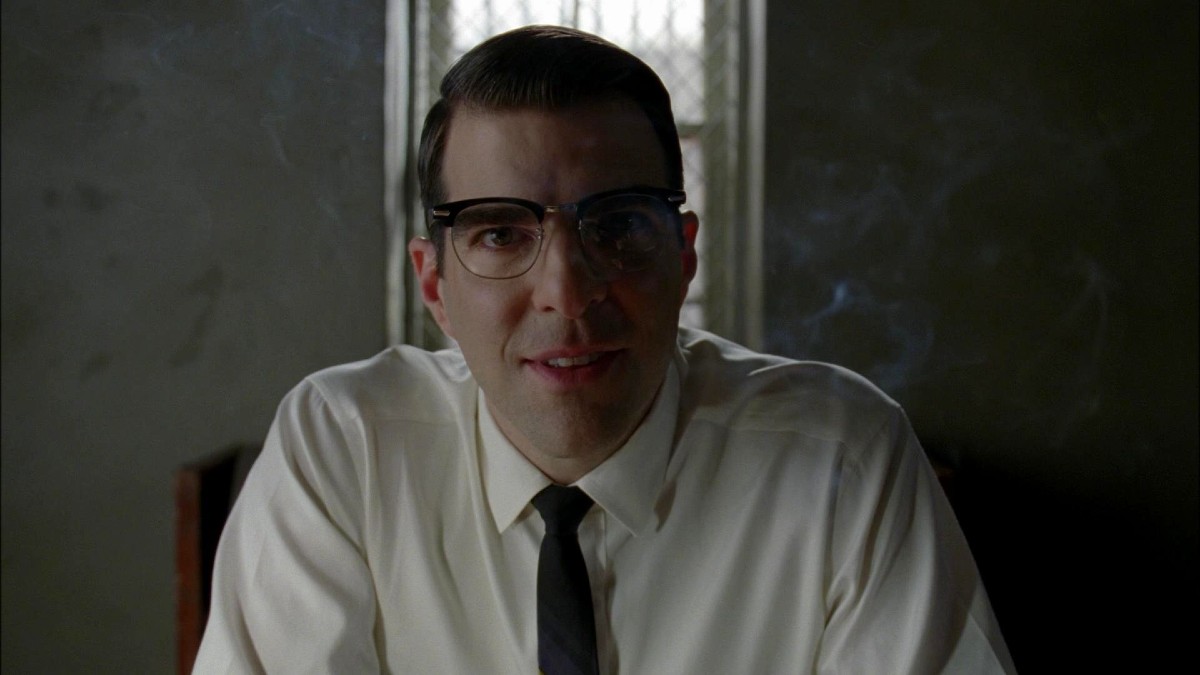
The second AHS season, Asylum, debuted in 2012. Set in 1964, it follows the staff and patients at Briarcliff Manor, a church-run mental hospital for the criminally insane. The series also jumps to the present day, following a group investigating the hospital’s inhumane treatment of the people locked up there.
Featuring several chilling characters and unique scares, Asylum is one of the scariest seasons of American Horror Story. While asylum settings are overdone in horror, Asylum uses its environment to full effect. However, some subplots are a little undeveloped and a few of them utterly ruin the atmosphere and tone. This is why Asylum isn’t in the top spot.
1. Murder House (Season 1)
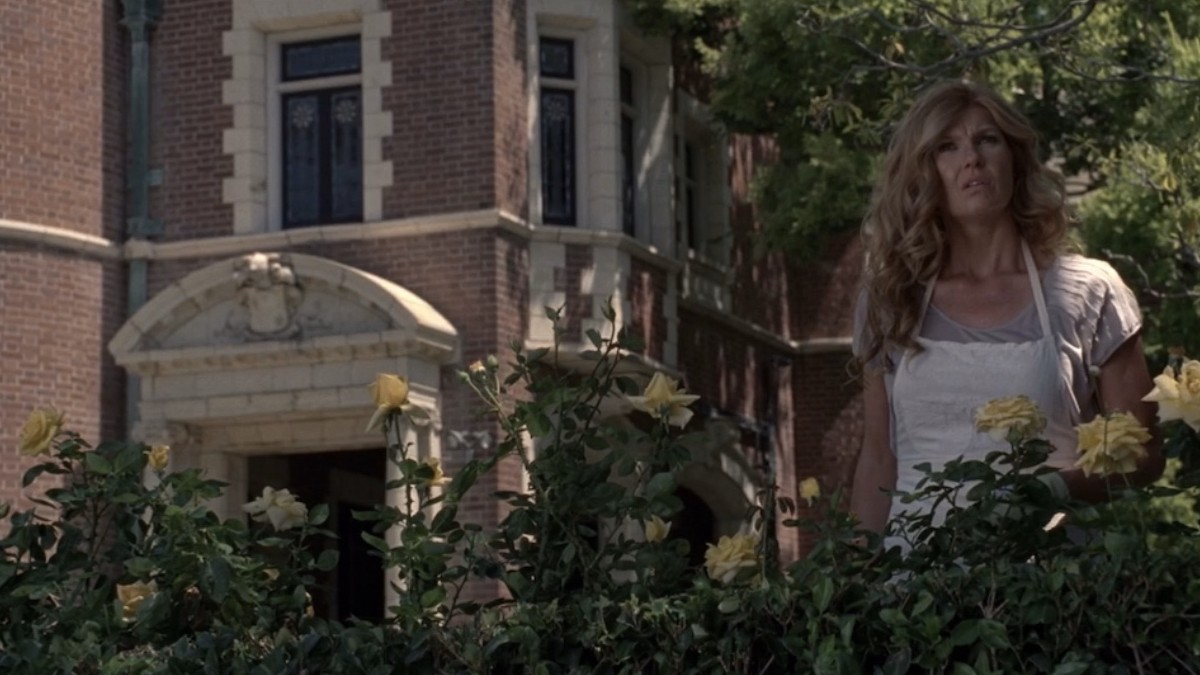
The first AHS season is still the best. 2011’s Murder House follows the Harmon family as they move into an old mansion in Los Angeles. Things soon go wrong as weird occurrences begin to unfold in the house and the family’s dark secrets rise to the surface.
Murder House’s low budget helps it immensely. This lack of funds leads to plenty of cramped spaces that help build the tension, and the series is forced to go for less-frequent but more high-impact scares. Because of this, the series has a delightfully creepy atmosphere of dread. On top of this, the house setting is relatable, which makes the horror feel more intense and immediate. The story is also a highlight⏤tight and focused with little to no fluff and none of the unfocused subplots that tend to drag later seasons down. Murder House led to TV horror making a massive comeback, and it’s easy to see why. This season shows how enjoyable serialized horror plots can be on the small screen.

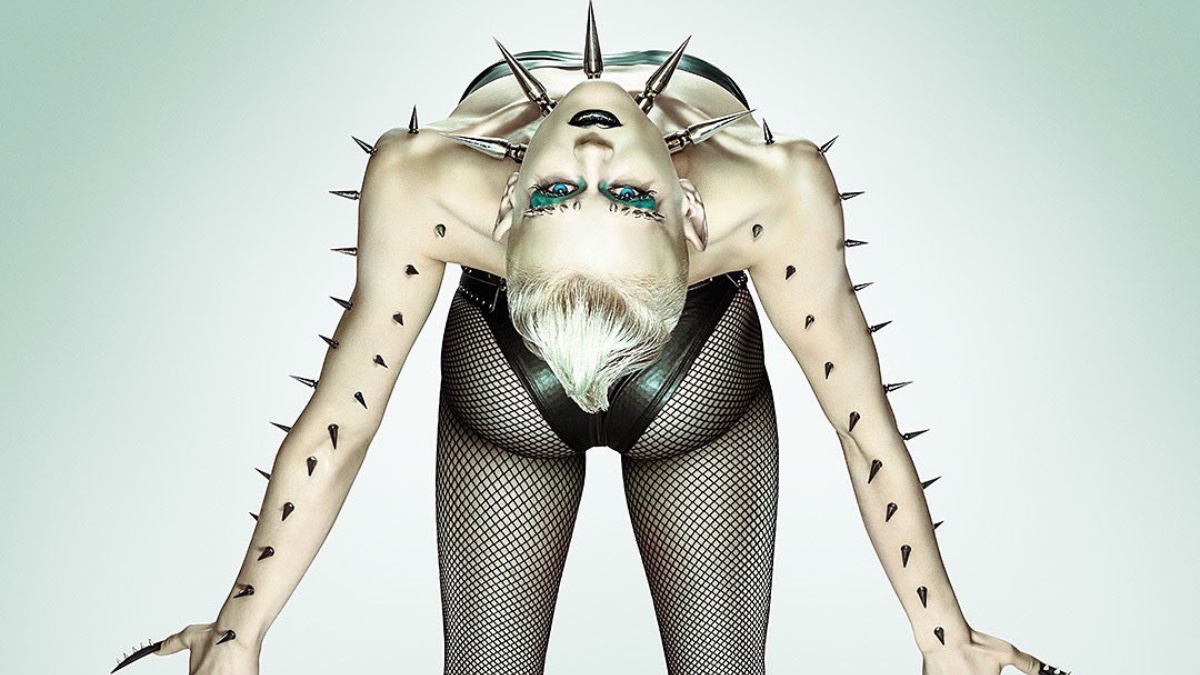
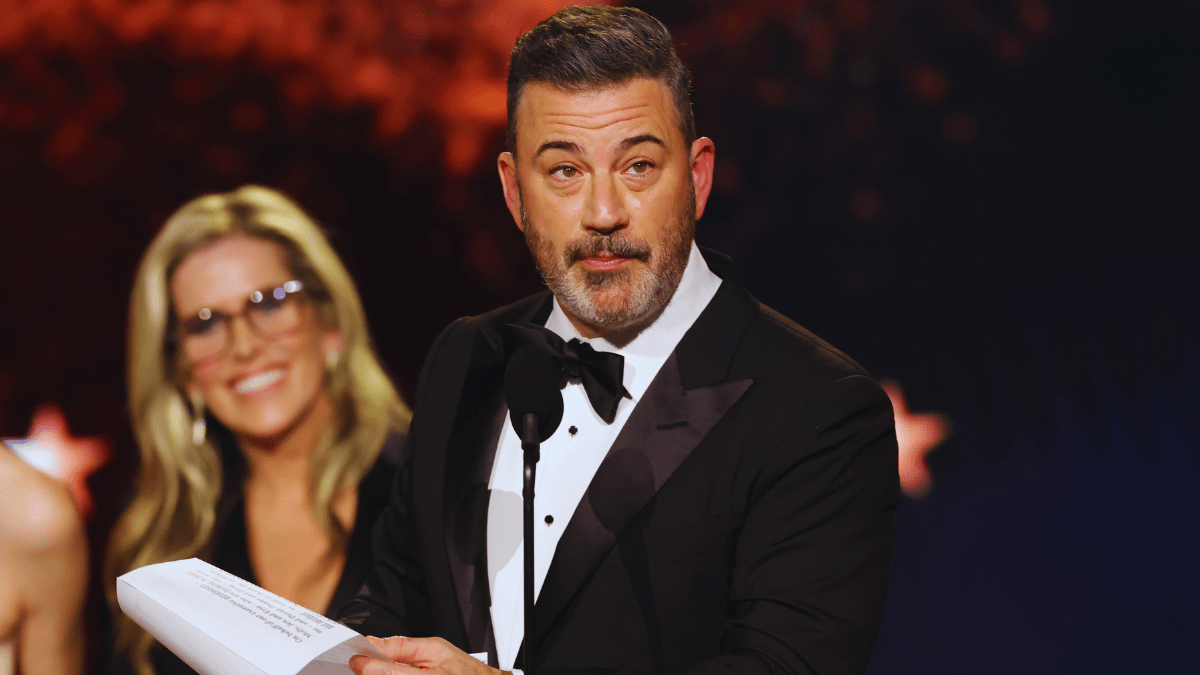
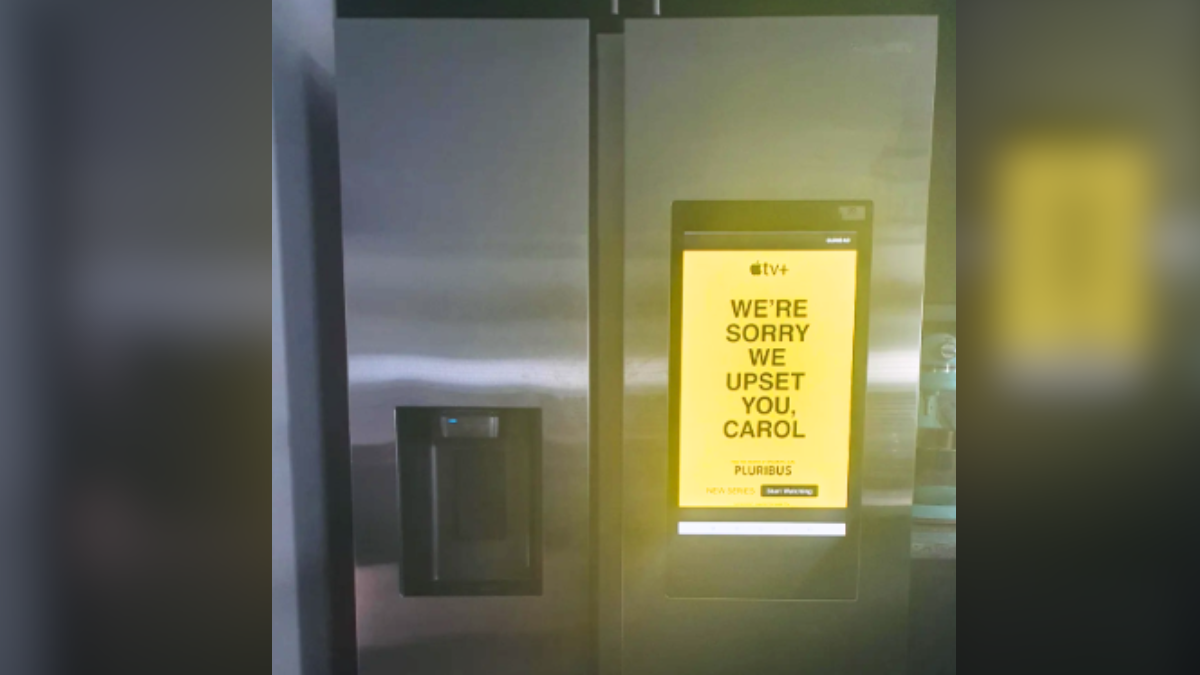


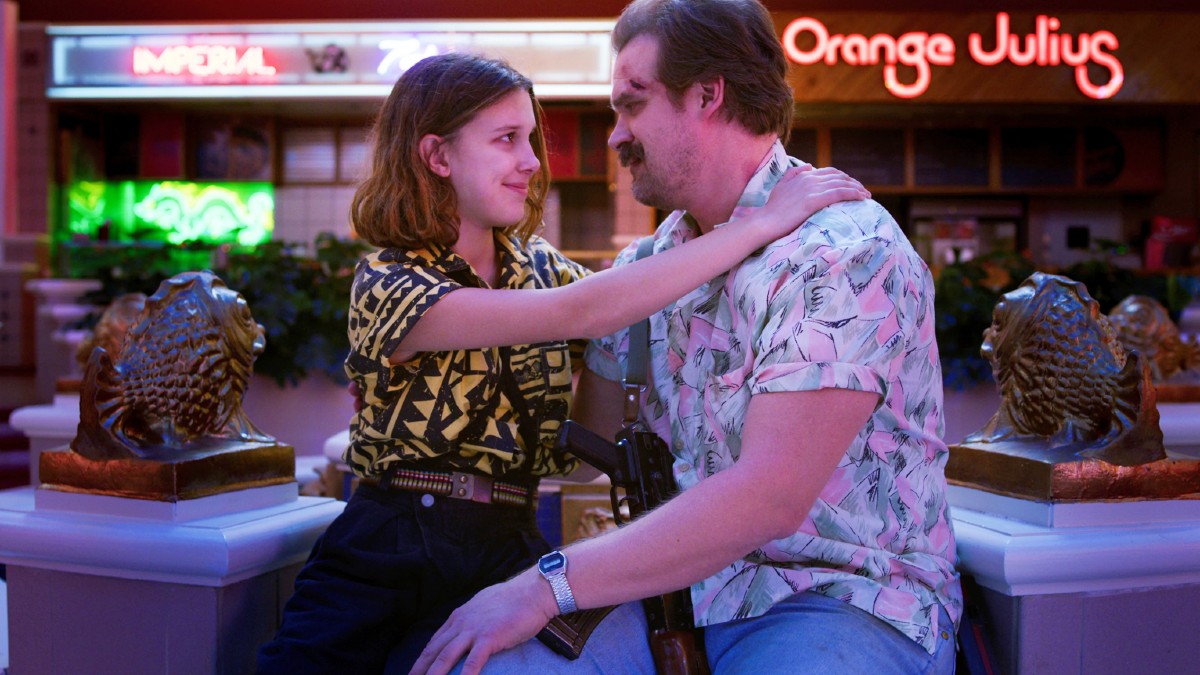

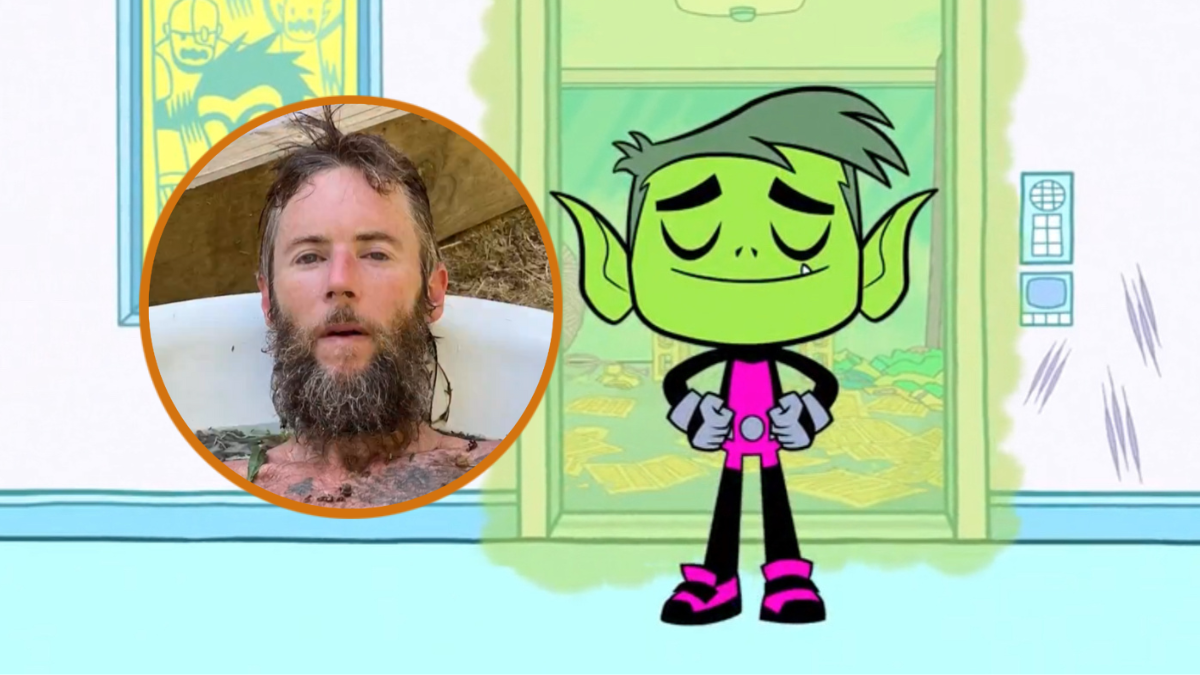


Published: Aug 23, 2023 10:44 pm